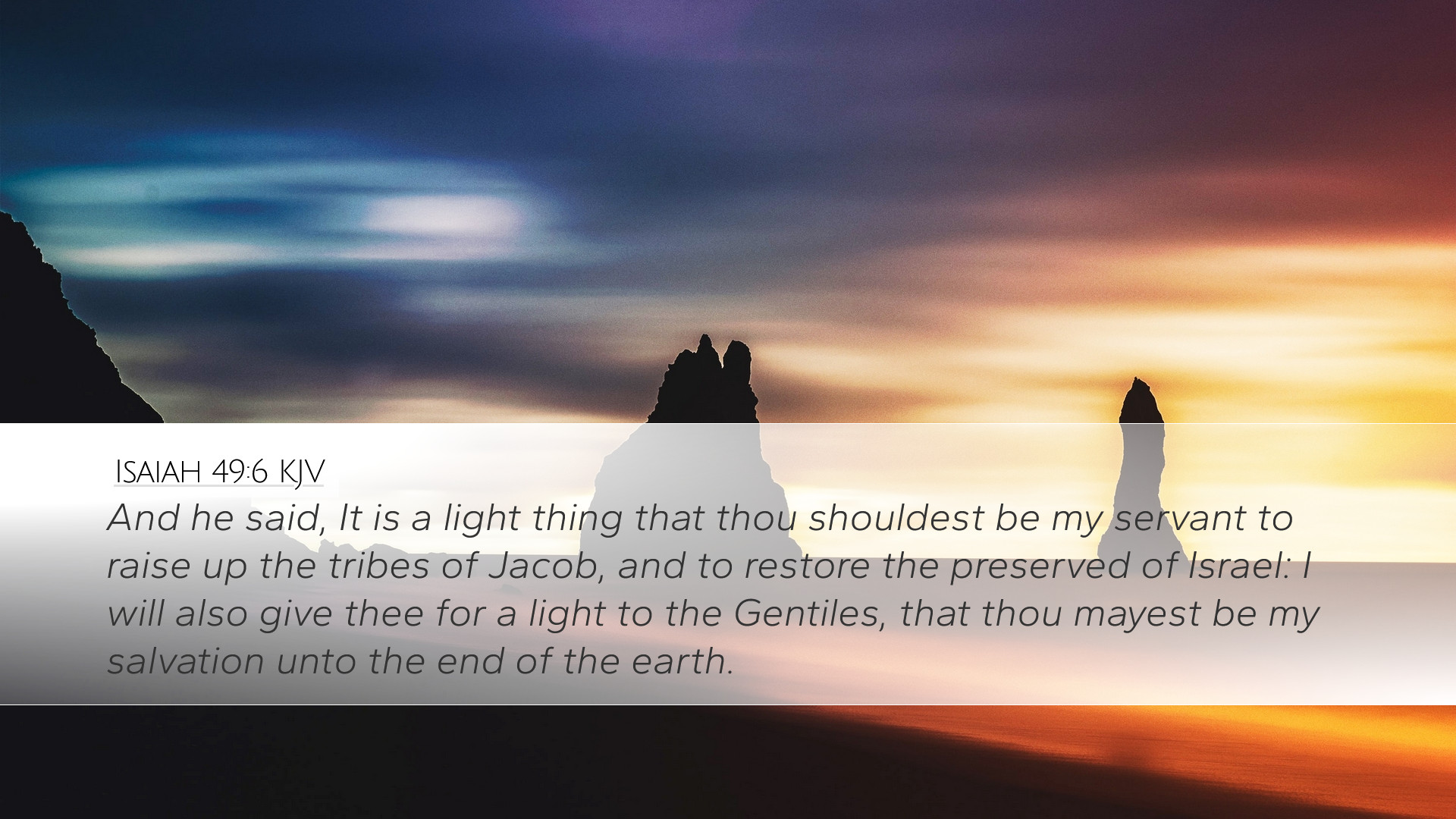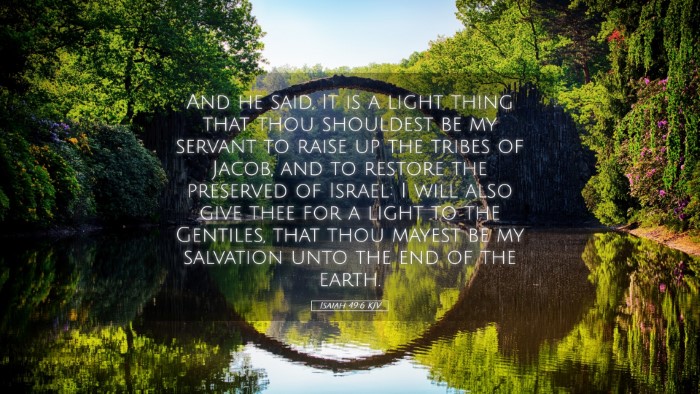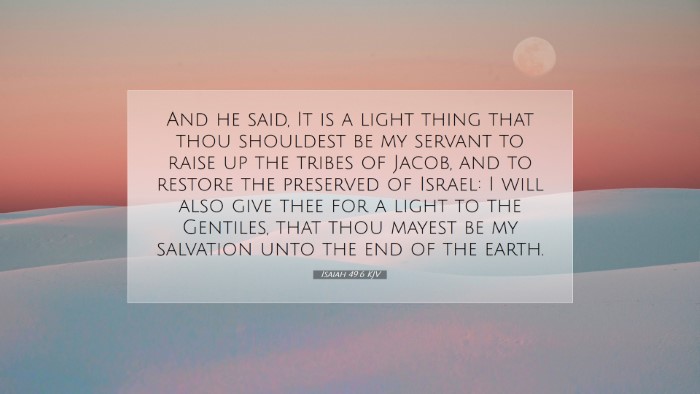Isaiah 49:6 - A Commentary
Isaiah 49:6 offers profound insight into God's redemptive plan, showcasing His intention not only towards Israel but also to the broader Gentile nations. The verse reads:
"And He said: 'It is too small a thing that you should be My servant to raise up the tribes of Jacob, and to restore the preserved ones of Israel; I will also give You as a light to the Gentiles, that You should be My salvation to the ends of the earth.'" (NKJV)
Contextual Background
This passage is situated within the context of the "Servant Songs" of Isaiah, which focus on a Messianic figure often interpreted as Jesus Christ. Isaiah speaks to a people weary from exile, offering hope through the promise of restoration, not just for Israel but for all nations.
Analysis of Key Phrases
-
"It is too small a thing":
This phrase indicates God's expansive vision for His purposes, as noted by Matthew Henry. The mission of the Servant transcends what was expected, reflecting the grand scale of God's redemptive plan.
-
"My servant":
The term "servant" signifies a chosen one, echoing the themes of humility and obedience central to Christ's ministry. Albert Barnes emphasizes that this Servant will faithfully fulfill the tasks assigned by God.
-
"Raise up the tribes of Jacob":
This represents the initial focus on the people of Israel. The Servant is tasked with restoring their fortunes, showcasing God's faithfulness to His covenant. Adam Clarke notes that this restoration is vital for the re-establishment of Israel's identity and purpose.
-
"A light to the Gentiles":
This pivotal aspect of the verse highlights the universal scope of salvation. Matthew Henry elucidates that the Servant's role expands beyond Israel, emphasizing the missionary aspect of the biblical narrative.
-
"My salvation to the ends of the earth":
This phrase underlines the comprehensive nature of God's redemptive plan. Albert Barnes explains that the Servant will extend grace and salvation to all humanity, breaking ethnic and cultural barriers.
Theological Implications
Isaiah 49:6 presents several theological themes significant for scholars, pastors, and students:
-
Universal Salvation:
The passage reinforces the belief that God’s grace is available to all, not limited by ethnicity or geography, a theme that resonates throughout the New Testament.
-
The Nature of God’s Servanthood:
The Servant model depicted here is one of selflessness and commitment to God’s mission, providing a paradigm for Christian ministry today.
-
Hope and Restoration:
For those in despair, this verse serves as a promise of hope and a reminder of God’s commitment to restore not only Israel but all creation.
Commentary Insights
Matthew Henry
Henry interprets the verse as indicative of God’s greater plan for redemption. He argues that the mission of Christ, seen here as the Suffering Servant, was not merely for Israel, but to bring light and salvation to all which highlights God's inclusive love.
Albert Barnes
Barnes emphasizes the significance of this verse in understanding the mission of Jesus. He notes that the promise made here signifies that the gospel is to be preached to every creature, echoing the Great Commission. Barnes particularly highlights the word "light," indicating the enlightening nature of divine truth that dispels darkness.
Adam Clarke
Clarke discusses the spiritual implications of the Servant's role in bringing salvation. He posits that the ‘salvation to the ends of the earth’ illustrates God's desire for every individual to seek Him, embodying the call for believers to share the gospel message far and wide.
Application for today
This verse provides significant application for modern believers:
-
Evangelistic Mandate:
Believers are reminded of their calling to be "lights" in a world filled with darkness, drawing on the Servant’s example of reaching out beyond cultural and ethnic borders.
-
Hope in Adversity:
Reflecting on God's promise through the servant leads believers to trust in God’s plan even during hardship, as He works all things for good.
-
Unity in Diversity:
The acknowledgment that God's salvation is intended for all reinforces the call for unity within the body of Christ despite differences.
Conclusion
Isaiah 49:6 encapsulates the essence of God’s redemptive purpose through Christ. This verse serves as a beacon of hope, illuminating the path for a vibrant, inclusive faith that is active in sharing God’s love and salvation with the whole world.


